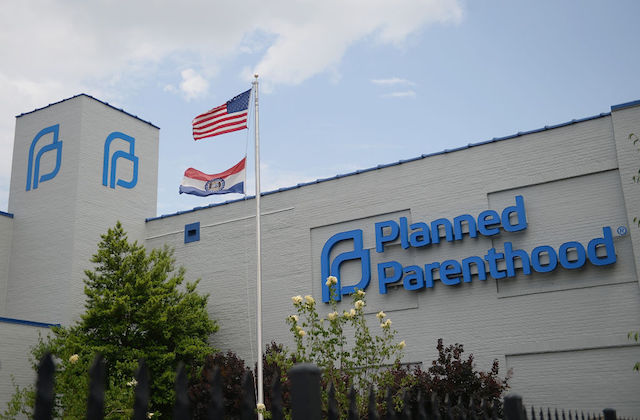Missouri's One Abortion Clinic Will Stay Open—For Now

A last minute ruling by a Missouri judge prevented the state from becoming the only one in the nation without an abortion clinic.
On Friday (May 31), Missouri Circuit Court Judge Michael Stelzer issued a temporary restraining order that prevents the state from revoking the license of the St. Louis Planned Parenthood clinic that is the only facility in Missouri that provides abortions. Based on his decision, the clinic can continue to offer the medical procedure.
Planned Parenthood of America brought the lawsuit against Missouri on Thursday (May 28), after the Missouri Department of Health and Senior Services said it found “potential deficient practices” during a March inspection and was considering revoking the facility’s license. If the clinic lost its license, it would remain open as a reproductive health care provider, but would be unable to offer abortions.
Planned Parenthood countered that the St. Louis health center has maintained 100 percent compliance. In its lawsuit, the organization said that if clinic closed, women would “turn to medically unsupervised and in some cases unsafe methods to terminate unwanted pregnancies.”
In his ruling, Stelzer wrote that Planned Parenthood “demonstrated that immediate and irreparable injury will result” if Missouri refuses to renew the clinic’s license.
Leana Wen, president of Planned Parenthood, said in an emailed statement, “Today is a victory for women across Missouri, but this fight is far from over. We have seen just how vulnerable access to abortion care is here—and in the rest of the country.”
Per The Washington Post:
The end of abortion services at the health center would mark a milestone in the state-by-state battle over abortion rights, one that has intensified in 2019 as conservative lawmakers across the country have pushed increasingly strict bans on the procedure. Emboldened by President Trump’s two appointments to the Supreme Court, many have set their sights on antiabortion groups’ ultimate prize: toppling the landmark 1973 Roe v. Wade decision that legalized abortion nationwide.
Missouri recently passed an eight-week ban on the procedure. There are no exceptions for people who became pregnant as a result of rape or incest. The law was signed by Governor Michael Parsons on May 24 and is scheduled to go into effect on August 28, reports CNN.
Missouri is also one of six states—the others are Kentucky, Mississippi, North Dakota, South Dakota and West Virginia—that has just one abortion clinic. Reproductive rights advocates fear that the final decision on the Missouri clinic could embolden the remaining states to stop their lone facility from offering the procedure.
“This is not about health care. This is about politics,” said David Eisenberg, the medical director for Planned Parenthood of the St. Louis Region and Southwest Missouri, in an interview with The Washington Post the day before the ruling. “We cannot expect the courts to be our last line of defense.”
If the center stops providing abortions, an estimated 1.1 million people of reproductive age would have to go outside of the state to have the medical procedure. The Post reports that the nearest facilities are in Granite City, Ill., approximately 10 miles from St. Louis, or 250 miles west of St. Louis in Kansas.
Black women will be disproportionately affected if the remaining abortion clinic closes. “While abortion bans impact everyone who can become pregnant, they hit people of color and those who are struggling to make ends meet the hardest—the people who already face barriers to accessing good health care, says Planned Parenthood, which also says that Black Missourians are more than twice as likely to experience poverty than White state residents. Driving hundreds of miles to another facility is cost-intensive, requiring transportation, possible overnight accommodations and time off work.
Beyond the economic toll, Black people’s reproductive health in Missouri already faces challenges, which would become greater if abortions were not accessible. The state’s overall maternal mortality rates are 50 percent higher than the rest of the country’s, and Black women die in greater numbers from pregnancy-related complications than White women.
After the judge issued his decision, Kawanna Shannon, the director of surgical services at Planned Parenthood in St. Louis, told reporters outside the courthouse: “We’re still here, because abortion is health care. We’re still here because blocking access to abortion in Missouri threatens the health, rights and lives of people of color and LGBTQ people across our state.”
NPR reports that a hearing on the case begins tomorrow (June 4).
